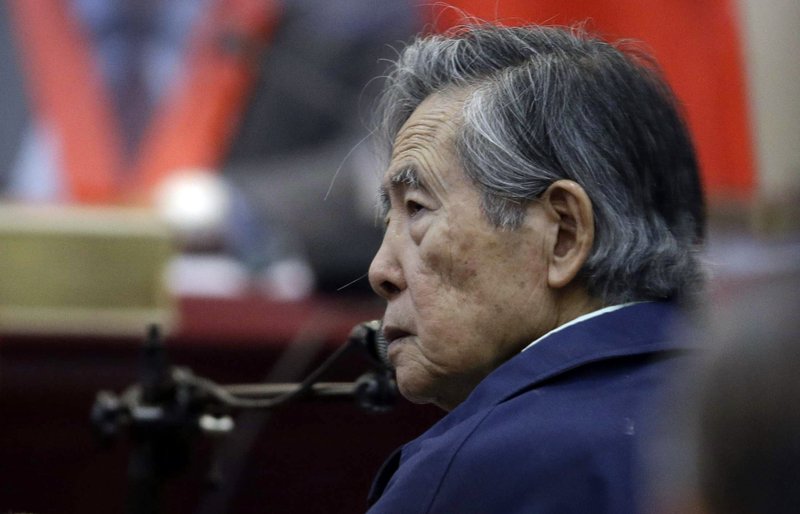Former president of Peru going back to prison
Oct 16, 2018
Originally published 11 October 2018
On Oct. 3, the Supreme Court of Peru repealed a pardon regarding former president Alberto Fujimori for “human rights abuses” and agreed that he should return to prison.
80-year-old Fujimori was shown entering a health clinic, where he had been treated in the past, with police located outside. He was joined by his youngest son Kenji.
Fujimori was pardoned last Christmas Eve for crimes against humanity by former President Pedro Pablo Kuczynski, in what is seen as an attempt to dodge impeachment before resigning from office just three months later, according to The Associated Press.
Kuczynski’s defense for pardoning Fujimori was that he had suffered heart complications that were supposedly worsened by the effects of conditions in prison.
The high court in Peru concluded that the pardon could and should be overturned using Peruvian and international law, given that Fujimori’s infractions are considered “crimes against humanity.”
Fujimori’s original sentence was 25 years for violently suppressing an uprising in the countryside, killing multiple civilians, one of which was an 8-year-old boy.
Accused of authoritarianism, Fujimori dissolved Peru’s elected Congress, suspended the constitution, and ruled autocratically, a sharp departure from the “democratic wave,” which saw most other Latin American countries transition towards representative democracy in the ‘90s.
According to Fujimori’s lawyer, he plans to comply with the decision made by the Supreme Court, though he remains determined to appeal the ruling, according to The Associated Press.
Fujimori, a polarizing political figure in Peru, ruled from 1990 to 2000. Many Peruvians credit him for the collapse of the Communist “Shining Path” guerrilla movement. Others resisted his authoritarian policies, and many were arrested and sent to prison.
Fujimori was previously a mathematics professor and a “political outsider” who rose from a humble background and defeated presidential candidate and writer Mario Vargas Llosa in 1990.
At the beginning of his term, Peru saw rapid inflation and guerrilla violence, giving Fujimori the opportunity to reconstruct the economy and privatize most state industries.The defeat of the Shining Path rebels was expensive and resulted in the Barrios Altos massacre, perpetrated by the Grupo Colina anti-communist “death squad.”
After videos leaked in 2000 showing his spy chief Vladimiro Montesinos bribing lawmakers, Fujimori fled to Japan, his family’s country of origin. He notoriously sent in his presidential resignation letter by fax machine.
In 2005, both advocates and opponents of Fujimori denounced him when he left for Chile, where he was then placed under arrest and taken back to Peru.
Editor’s Note: Information from The Associated Press was used in this report.












